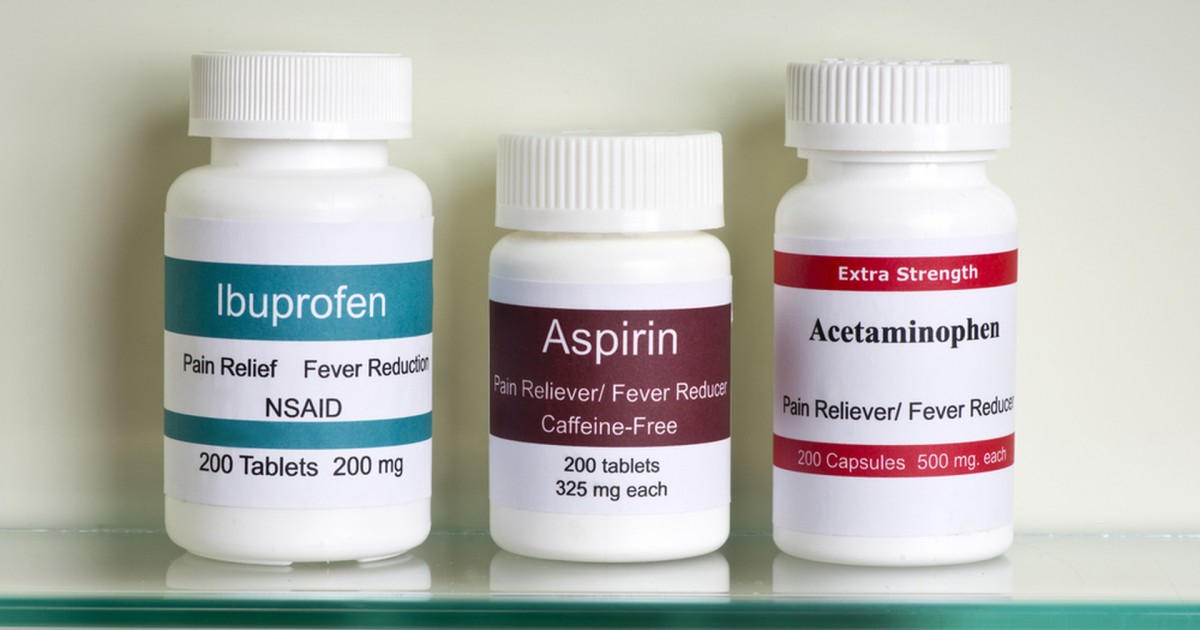We’re all aware of everyday, over the counter drugs and probably even take a handful of different ones ourselves. But how exactly do they work? Start a search today to learn, in the most entertaining and informative way possible, how drugs work.
From Wikipedia: “A drug is a substance other than food, that when inhaled, injected, smoked, consumed, absorbed via a patch on the skin, or dissolved under the tongue, causes a physiological change in the body.” Let’s dive deeper than that!
Tylenol
Acetaminophen, or Tylenol, falls under the Non-Opioid Analgesic category, just like Aspirin, Advil, and Celebrex. I know, enough with the big words. So… how does it work? Sigh… we don’t really know. And no, I don’t mean Healthversed doesn’t know. I mean science… science doesn’t really know yet. You’ll find that’s the case with a surprising number of common drugs.
What we do know is that Tylenol prevents your body’s Prostaglandins from producing a natural enzyme that produces pain, fever and inflammation. We’re still working on the rest of it… but hey, as long as it works, right?
Cough Medicine
So, you’ve called in sick to work and your deep breaths sound a lot like your iPhone’s vibrate setting. Time for a little over the counter cough medicine.
Let me preface this by saying that a lot of people don’t believe that cough medicine works at all. But, for argument’s sake, let’s assume that it does. There are a few varieties, so I’m just going to give you the Cliff Notes on each one:
- Antitussives are used to suppress your cough reflex, and treat dry coughs.
- Expectorants are increase the amount of phlegm made by the lungs to flush them of the trouble stuff.
- Antihistamines reduce the production of (spoiler alert) histamines, and are typically used to treat allergies.
- And finally, Decongestants narrow the blood vessels in your lungs to help reduce congestion.
Pepto Bismol
Nausea, heartburn, indigestion… Bismuth, the active ingredient in Pepto, is a naturally occurring mineral and has been used since the early 19th century to treat a wide variety of stomach ailments. It’s considered an antacid/absorbent. That’s the easy part.
Pepto Bismol coats your stomach and intestines to protect them from stomach acid. The why, again, is still relatively unknown. What we do know is that in small doses, and for most people, Pepto Bismol really eases discomfort.
Polysporin
Scrapes, sores, burns… from a very young age, Polysporin had me convinced from that my Mom was actually a superhero.
Polysporin is an antibacterial ointment with a ton of medicinal uses and it’s a staple in most medicine cabinets around the world. The magic is in the antibiotics. Polysporin, when applied directly to the troubled area, slows and stops the growth of bacteria to help aid the healing process.
Insulin
In 1921, Canadian Physician Frederick Banting discovered the hormone insulin. It won Banting the Nobel Prize and in effect, saved countless lives around the world. Insulin is a naturally occurring hormone that regulates blood glucose levels in all animals, humans included. The injection of insulin can be used to regulate glucose for those with metabolic deficiencies — most notably, those that suffer from diabetes.
Penicillin
Pro tip: it doesn’t taste like bananas, regardless of what your doctor tells you. Which I’ll accept, considering it’s saved an estimated 200 million lives since its discovery. Penicillin is a group of antibiotics that treat a wide variety of bacterial infections. But how does it work?
It… explodes bacteria. Seriously. It attacks bacteria during the growth stage, weakens the cell walls and flushes the cell bacteria with fluid until it bursts.
Asthma Inhalers
Everyone knew a few kids growing up that relied on inhalers to fight off allergies or prevent them from going in to a full-scale asthma attack. But, how do they work?
Well, an Inhaler really is just a means of conveyance, much like needles or pills. The medicine itself varies from one inhaler to the next. The most common drug used to treat asthma is Albuterol. Albuterol coats the muscle tissue on the inside of your lungs and relaxes them. Relieving the tension that can lead respiratory difficulties and Asthma attacks.
EpiPen
Common around campgrounds and cottages, EpiPens, and knowing how to use them properly, can save lives. An EpiPen contains epinephrine. It’s essentially an adrenaline shot, often delivered to the meaty part of the thigh. Epinephrine narrows the blood vessels and opens up the airways in the lungs to counteract low blood pressure and blocked airways in the event of a severe allergic reaction. Even if you don’t know anyone with severe allergies, it’s good to keep one of these in your medicine cabinet just in case.
Caffeine
And, last but not least, the business person’s (and writer’s) drug of choice: Caffeine. Coffee, tea and most soft drinks contain a whack load of caffeine. It’s the most commonly used drug in the world by far, and it’s generally safe.
In our brain, we have these things called adenosine receptors. These glands are in charge of distributing depressants that slow down nerve activity and promote sleep. Caffeine, when consumed orally, attaches itself to those receptors and says “get to work, you have deadlines!” The crash happens when the Caffeine wears off and the glands are allowed to work properly again.
Thanks for reading! Remember, the more you know about what you put in to you body, the better. Be sure to consult your doctor before ingesting anything you’re unsure of, and listen to your body!
